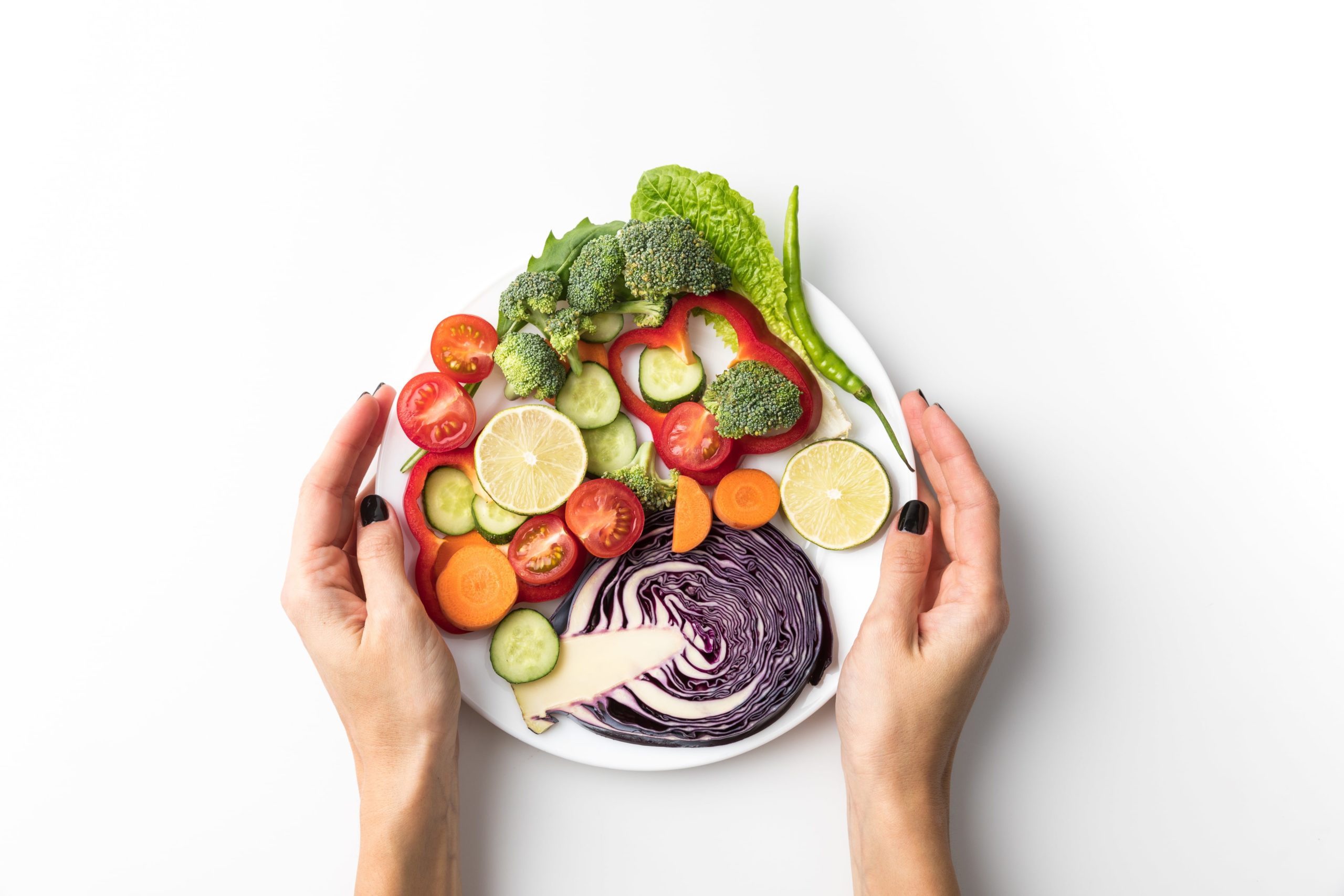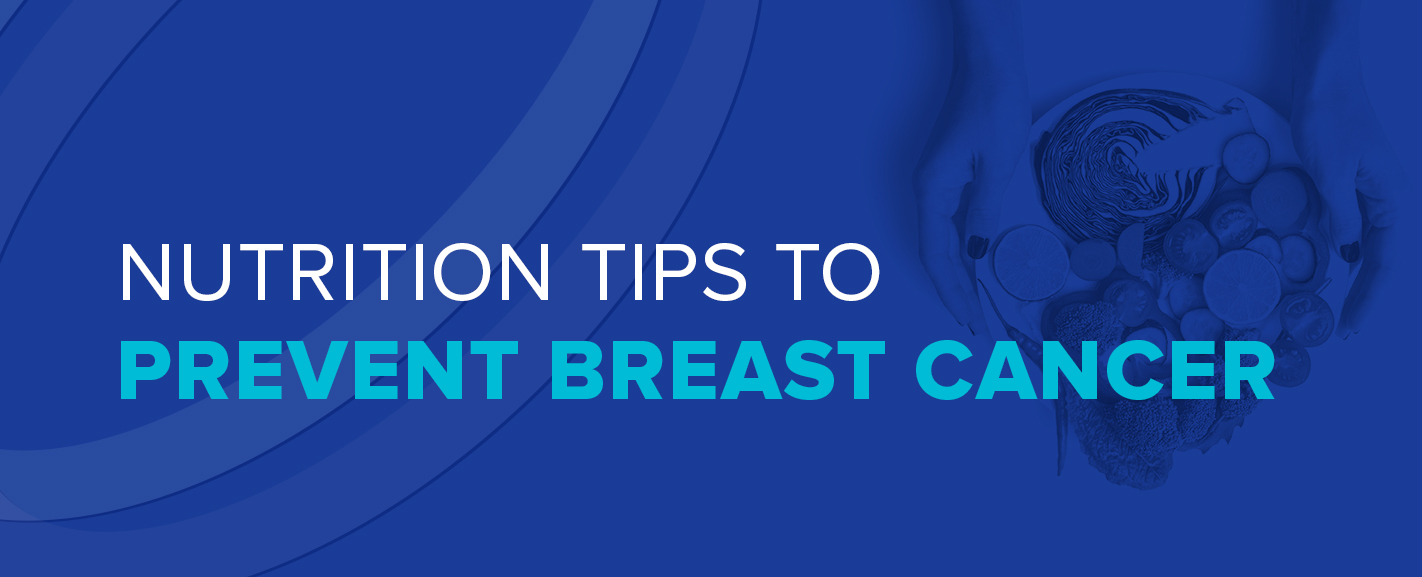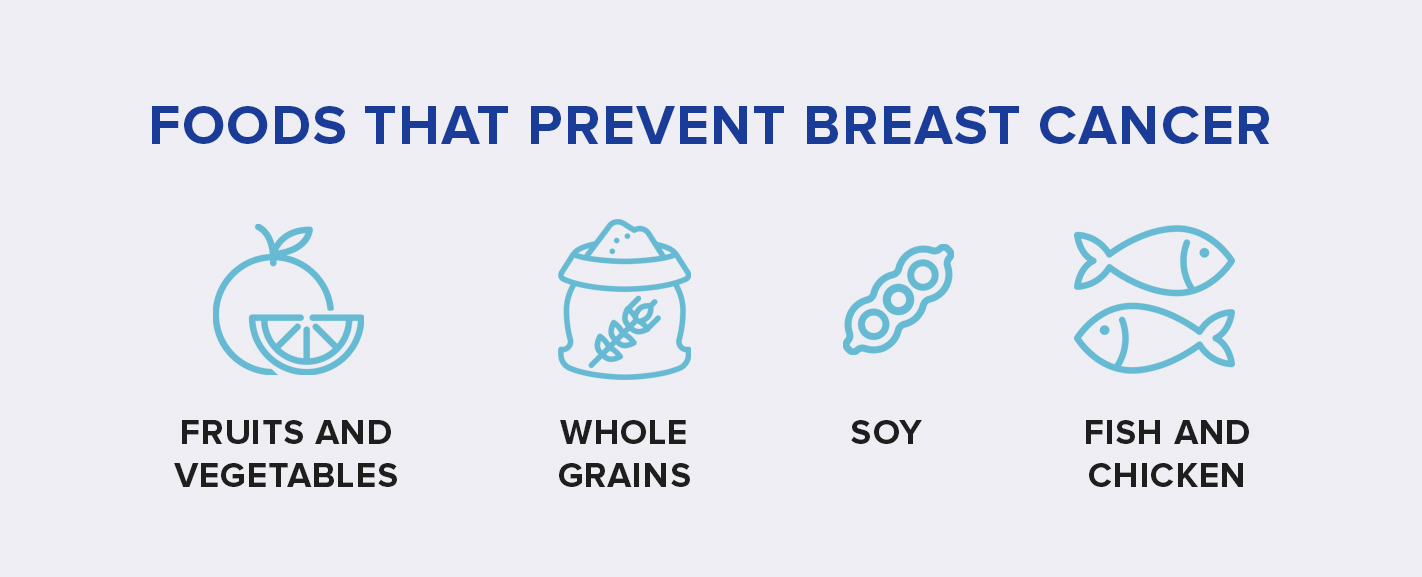Nutrition Tips to Prevent Breast Cancer
One in eight women will receive an invasive breast cancer diagnosis during her lifetime. To prevent this, many research the latest health fads claiming to reduce the chance of developing cancer.
Unfortunately, no magic food or workout routine exists to ensure you will never develop cancer. However, making some slight changes to your diet and activity could help lower your likelihood of receiving that diagnosis. While many factors outside your control contribute to breast cancer — such as genetics and family history — you can make some lifestyle choices now to help decrease your chance of developing specific cancers in the future.
Breast Cancer Prevention Diets
Women have a significantly higher chance of breast cancer, but one in 833 men will develop the disease as well. Leading an active lifestyle and eating plenty of fruits and vegetables will generally lower your chances of most health problems. As a result, these healthy adjustments are beneficial for both men and women to follow, regardless of their breast cancer risk.
The Mediterranean diet promotes the consumption of foods to avoid breast cancer. Scientist Ancel Keys noticed that countries in the Mediterranean experienced a lower number of deaths related to coronary heart disease. The diet based on this observation incorporates the flavors of the region with foods that promote heart health. It is high in whole grains, beans, olive oil, nuts, seeds, vegetables and fruits, and limits meat and dairy consumption. The World Health Organization and the Dietary Guidelines for Americans recognize the diet as a sustainable, healthy option. Staples of the Mediterranean lifestyle could help fight against breast cancer.
However, you don’t need to choose a specific breast cancer diet to start treating your body kindly. Eating plenty of fresh produce, whole grains and lean proteins gives you a great place to start. Several foods have proven cancer-fighting properties. Including these in your nutrition plan gives you the flexibility to eat what works for you. There’s no benefit to starting a restrictive diet you cannot feasibly maintain.
Also, no diet can work on its own — you must pair it with consistent exercise. Even a 10-minute brisk walk can get your blood pumping and aid in your health journey.
Foods That Prevent Breast Cancer
To start shaping your healthy diet, begin by incorporating some of these breast cancer-fighting foods into your daily routine. If you’re feeling overwhelmed, add one at a time until it feels natural having it in your shopping cart and your recipes.
- Fruits and vegetables: The USDA recommends consuming five to nine servings daily for a healthy diet. The best ones for breast cancer prevention include dark, leafy greens, berries and anything rich in flavonoids, beta carotene and carotenoids. These all promote health benefits beyond breast cancer prevention. A study in the American Journal of Clinical Nutrition discovered through data analysis on 91,779 womenthat diets consisting mostly of plants lowered the risk of developing breast cancer by 15%.
- Whole grains: Heart-healthy foods are essential for breast cancer survivors to eat because sometimes treatment can damage the heart. Studies suggest a link between whole grainsand a decreased risk of breast cancer. The fiber it contains also helps support the digestive system in eliminating excess estrogen.
- Soy: Though early indications suggested soy could raise your chances of breast cancer, current studies suggest it could lower your chancesof the disease returning. Be wary of soy supplements, however, because the research primarily focused on foods like tofu, soy milk and edamame.
- Fish and chicken: These are good alternatives to red meats because they come packed with lean protein. Scientists link some types of fats with cancer growth, but the omega-3 fatty acids in fishsuch as salmon and tuna work to reduce inflammation in the body and support the health of the brain and the heart.
Foods to Avoid
Just like some foods could help you avoid breast cancer, others could cause cancer to develop or return a second time. You can enjoy some items in moderation, but others you should avoid altogether.
- Supplements: Supplements seem like a simple way to add some health benefits to your diet. Unfortunately, specific kinds could increase the likelihood of cancer returning. Breast cancer survivors should avoid anything with black cohosh, dong quai, licorice, evening primrose, chasteberry and red clover.
- Alcohol: You can enjoy a glass of wine every once in a while. However, consistent alcohol intake could damage DNA cells and increase the risk of hormone-receptor-positive breast cancer. Compared to women who abstained from all alcohol use, women who drank three alcoholic beverages a week increased their chance of a diagnosis by 15%. With each additional drink, it increased by 10%.
- Bad fats: Not all fats are equal. In addition to the omega-3 fatty acid in some fish, fats found in olive oil, nuts, avocado and flaxseed are healthy replacements for the fatsfound in butter, fatty meats, hydrogenated oils, full-fat dairy and some kinds of margarine. Trans fats — the fats found in processed foods — have the closest connection to an increased chance of breast cancer.
- Added sugar: Natural sugars found in fruit are healthy carbohydrates. In contrast, sugar in processed foods and beverages adds only empty calories. A research study used mice to determine that when fed the amount of sugar in the typical American diet, the mice developed mammary gland tumors. Those tumors were more likely to metastasize, or spread.
Schedule an Appointment
If you are concerned about a particular lump, discoloration or discharge from your breasts, schedule an appointment today with a Health Images center near you. We equip our facilities with the cutting-edge technology we need to provide you with excellent and compassionate medical care. Early detection gives you the best chance at successful treatment, so invest in your health and make an appointment today.
Visit our website to learn more about the services we provide and what to expect during a mammogram.
Call To Schedule Your Appointment
Sources
- https://www.breastcancer.org/symptoms/understand_bc/statistics
- https://www.cancer.org/cancer/breast-cancer-in-men/about/key-statistics.html
- https://www.medicalnewstoday.com/articles/316720#foods-to-eat
- https://www.ncbi.nlm.nih.gov/pmc/articles/PMC3684452/
- https://www.mayoclinic.org/healthy-lifestyle/nutrition-and-healthy-eating/in-depth/mediterranean-diet/art-20047801
- https://www.healthline.com/nutrition/foods-high-in-antioxidants
- https://www.ncbi.nlm.nih.gov/pmc/articles/PMC3831538/
- https://nutritionj.biomedcentral.com/articles/10.1186/s12937-018-0394-2
- https://www.medicalnewstoday.com/articles/316720#fiber
- hhttps://www.medicalnewstoday.com/articles/316720#soy
- https://www.helpguide.org/articles/diets/cancer-prevention-diet.htm#
- ttps://www.webmd.com/breast-cancer/ss/slideshow-diet-after-breast-cancer
- https://www.breastcancer.org/risk/factors/alcohol
- https://stanfordhealthcare.org/medical-clinics/cancer-nutrition-services/reducing-cancer-risk/breast-cancer-prevention.html
- https://cancerres.aacrjournals.org/content/76/1/24
- https://www.envrad.com/signs-and-symptoms-of-breast-cancer/
- https://www.healthimages.com/locations/
- https://www.healthimages.com/services/
- https://www.healthimages.com/services/mammography/






